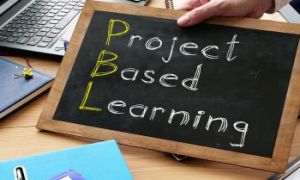

In a bold move to restore trust and transparency in early childhood education, the New South Wales Government has mandated that all ECEC services must publicly display their compliance and quality history within two weeks. This urgent directive follows a series of high-profile failures in the sector that have shaken public confidence and prompted calls for systemic reform.
As of 2024–2025, new national regulations across Australia have significantly tightened restrictions on smoking and vaping in and around early childhood education and care (ECEC) settings. These changes reflect a growing commitment to child safety, educator well-being, and public health, and they’re now embedded in the Education and Care Services National Regulations and the National Quality Standard (NQS).
In early childhood education and care, child safety is not just a number—it’s a practice. While educator-to-child ratios are essential, they are only one part of a broader obligation: ensuring adequate supervision at all times. Together, these two pillars—Regulation 122 and Section 165—form the foundation of safe, responsive, and compliant care.
A: In early childhood education and care (ECEC) settings across Australia, mobile phone use by educators is now subject to strict national reforms aimed at safeguarding children’s well-being and ensuring professional presence.
In a landmark move to strengthen child safety and regulatory oversight, the Australian government is preparing to roll out five major reforms across early childhood education centres. These changes, expected to take effect within months, aim to address longstanding gaps in compliance, transparency, and sector accountability.
Australia’s Department of Education has issued compliance notices to 30 early childhood education centres, exercising new regulatory powers granted by the federal government. This marks a significant escalation in national oversight following a wave of child safety concerns and public scrutiny across the sector.
An NSW parliamentary inquiry has revealed that Little Zak's Academy, a prominent childcare provider, received over $2.9 million in state funding despite multiple breaches of child safety regulations across its centres.
Parliament has passed legislation enabling the federal government to suspend or revoke Child Care Subsidy (CCS) funding for early childhood education providers that fail to meet prescribed safety standards.
Under a new bill, centres that seriously breach standards will have one month to rectify issues before losing taxpayer-funded subsidies. While framed as a grace period to avoid sudden shutdowns, critics worry that such leniency could prolong children’s exposure to risk.
The recent announcement that three Melbourne families are launching legal proceedings against G8 Education marks a pivotal moment in Australia’s childcare crisis. With over 250 families now engaged with legal representatives and one educator charged with 70 offenses against infants and toddlers, this case isn’t just about individual accountability—it’s about exposing the fault lines in our safeguarding systems.
 As an Educator in Australia, your pay rate falls under the Children’s Services Award 2010. This award states the minimum amount that an employer can… Read More
As an Educator in Australia, your pay rate falls under the Children’s Services Award 2010. This award states the minimum amount that an employer can… Read More
 When working as a qualified Early Childhood Teacher (with a university degree) within a service, your rate of pay will come from the Educational Services… Read More
When working as a qualified Early Childhood Teacher (with a university degree) within a service, your rate of pay will come from the Educational Services… Read More
 When working as a Diploma Qualified Educator your pay rate is from the Children's Services Award 2010. This Award states your minimum rate of pay… Read More
When working as a Diploma Qualified Educator your pay rate is from the Children's Services Award 2010. This Award states your minimum rate of pay… Read More
 When working as a Cert 3 Qualified Educator, your pay rate is from the Children's Services Award 2010. This Award states your minimum rate of… Read More
When working as a Cert 3 Qualified Educator, your pay rate is from the Children's Services Award 2010. This Award states your minimum rate of… Read More
 Educational Leaders play a crucial role in their early childhood service by ensuring that the educational program aligns with best practices and supports the holistic… Read More
Educational Leaders play a crucial role in their early childhood service by ensuring that the educational program aligns with best practices and supports the holistic… Read More
 In early childhood education and care, ratios are more than a technicality—they are a frontline safeguard. Every child deserves responsive supervision, emotional connection, and developmental… Read More
In early childhood education and care, ratios are more than a technicality—they are a frontline safeguard. Every child deserves responsive supervision, emotional connection, and developmental… Read More
 Here’s a comprehensive Mobile Phone and Smart Watch Policy tailored for early childhood education and care (ECEC) services in Australia, aligned with the latest 2025… Read More
Here’s a comprehensive Mobile Phone and Smart Watch Policy tailored for early childhood education and care (ECEC) services in Australia, aligned with the latest 2025… Read More
 With the new national child safety reforms kicking in on 1 September 2025, early childhood services like yours have a real opportunity to lead the… Read More
With the new national child safety reforms kicking in on 1 September 2025, early childhood services like yours have a real opportunity to lead the… Read More
 The Sea of Fish Challenge is a national initiative that invites children, educators, families, and communities to create and display fish artworks as a symbol… Read More
The Sea of Fish Challenge is a national initiative that invites children, educators, families, and communities to create and display fish artworks as a symbol… Read More
 Across the early childhood education and care sector, educators are sounding the alarm: current staffing ratios are insufficient to deliver safe, meaningful, and developmentally appropriate… Read More
Across the early childhood education and care sector, educators are sounding the alarm: current staffing ratios are insufficient to deliver safe, meaningful, and developmentally appropriate… Read More

Project-based learning is an educational approach in which students acquire knowledge and skills by working...
See more...
Resigning from a role in early childhood education is a natural part of career progression...
See more...
The following article lists 20 Cultural Games, Instructions For Each Game, Benefits Of Teaching Children These Games...
See more...© 2009-2025 Aussie Childcare Network Pty Ltd. All Rights Reserved.

